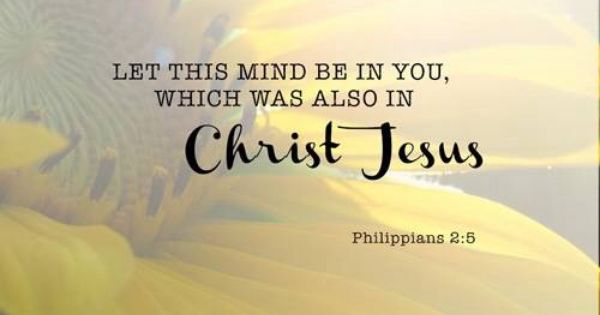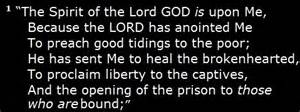“Have the Same Mindset”

Philippians 2:1-11 – October 1, 2023
How many here have seen a Christmas pageant? How many here have ever participated in a Christmas pageant? It can be sweet, even awe-inspiring, seeing the story of the Nativity played out, sometimes with a large choir or even real animals. We can watch a Christmas pageant and be so proud of our children or grandchildren as they participate. Or, we could possibly be totally swept away as we consider what a grand, eternal narrative we are watching, as it was played out on a huge cosmic stage!
Today’s Scripture reading comes from the apostle Paul’s letter to the Philippian believers. I want us all to pay close attention as “we connect this passage from Philippians theologically with the Incarnation, as God in Jesus came down on our level.” [1]
We all know the story of Christmas Eve, and the cast of characters. The shepherds, the angels, the animals. Even the wise men (even though they really arrived some months later, according to the Gospel of Matthew). We see the Holy Family at the center of the Christmas pageant. Young Mary, exhausted shortly after the birth. Joseph, trying to protect his family. Then, we have the baby Jesus. A beautiful baby.
But, what if we walk around backstage, behind the manger? That is what Paul is doing right here in Philippians 2! Paul is showing us what went on behind the scenes, before time began. Paul reminds his friends – his readers in Philippi – about the mind, the motivation and the character of God, in Jesus Christ. Then, Paul starts to relate the behind-the-scenes story of the Incarnation. Imagine only being vaguely aware of how Jesus came into the world. Paul lets us know how God the eternal Son humbled Himself! Became human – a tiny baby!
Jesus fully joined the human race. He became one of us, and willingly left all of His Godhood behind. Far, far away in heaven. Just think of what a huge cosmic event that was, for the eternal God the Son to become a tiny, helpless human baby. And yet, becoming human was (and is) the best way to communicate with us humans, on our level. In our language, and in a way we could possibly begin to understand.
When Paul wrote this letter to his Philippian friends, he was worried about their little church. He had heard about some church fights some of the believers were having. Paul calls these fights divisions in the body. (Remember, Paul refers to the church as the body of Christ in several places, in several places in the New Testament.)
Paul had just finished talking about these divisions in the church when he says “make my joy complete by being like-minded, having the same love, being one in spirit and of one mind. 3 Do nothing out of selfish ambition or vain conceit. Rather, in humility value others above yourselves, 4 not looking to your own interests but each of you to the interests of the others.”
Think back on your own history, and the history of this church, or other churches where you have been a member. Do you remember church fights? Where one or two members were bickering with each other? Perhaps others in the church started to join in? Even, maybe, it got to the point of a church split? Perhaps it was an argument between different members of the church board. Or a difference in worship styles. Or a showdown between the pastor and one or two elders in the church. Or even a disagreement about the style of the new church drapes.
Let’s concentrate on what Paul said in our reading today, from Philippians. “Have this mind in you that was in Christ Jesus.” Our Lord Jesus is all about unity. His humility and love for everyone transcends division and fighting, squabbling and bickering. Even over serious, consequential things like worship bands and the color of the new church carpet.
The Church Universal today is fractured and splintered into so many different pieces! We know that the quarrels, disagreements and selfish attitudes among church members are nothing new. Paul wrote to his friends about those same things, and it hasn’t changed one bit, all these centuries later. Whether it is conflicts between faith traditions (Catholics vs Protestants), between denominations (Baptists vs Methodists) or groups within denominations (conservative vs liberal), things have certainly not changed. [2]
Yet, the apostle Paul knows very well how the Gospel of Christ can change hearts and minds! Just look at how the various Philippian believers, from all strata of society, welcomed the stranger Paul into their midst. They welcomed him and the Gospel he preached into their hearts and homes! And, they continued to financially support Paul long-distance long afterwards, when he was in prison in Rome.
As Paul says, we need to pattern our lives upon Jesus Christ and His humility. However, I caution us all because of powerful things, divisive things that are just waiting to pounce and to separate us as believers in Christ. We need to keep our eyes on Jesus, and not allow conflicts, quarrels and divisions to confuse and separate us as believers.
That is why World Communion Sunday exists. We all believe in our Lord Jesus Christ. We all – across faith traditions, across language differences and cultural divides, across earthly conflicts and reasons to fight – can agree on this important thing. We come together in our faith in Christ; we come together in our reverence for God and our celebration of the Lord’s Supper.
And one day, the world wide group of believers will acknowledge together that “God exalted Jesus to the highest place and gave him the name that is above every name, 10 that at the name of Jesus every knee should bow, in heaven and on earth and under the earth, 11 and every tongue acknowledge that Jesus Christ is Lord, to the glory of God the Father.”
So, come. The Lord has prepared THIS table. To that, we can all say “Maranatha! Come, Lord Jesus!” And we can also say, “Alleluia, amen!”
(Suggestion: visit me at my other blogs: matterofprayer: A Year of Everyday Prayers. #PursuePEACE – and A Year of Being Kind . Thanks!
(I would like to express my great appreciation for the observations and commentary from Alyce McKenzie, https://www.patheos.com/progressive-christian/level-with-me-alyce-mckenzie-09-19-2014. And also, many thanks to Dennis Bratcher and his superb article at http://www.crivoice.org/kenosis.html.)
[1] https://www.patheos.com/progressive-christian/level-with-me-alyce-mckenzie-09-19-2014
[2] http://www.crivoice.org/kenosis.html – Dennis Bratcher

